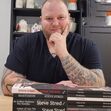Steve Stred's Blog, page 27
February 24, 2023
Book Review: Illusions of Isolation by Brennan LaFaro
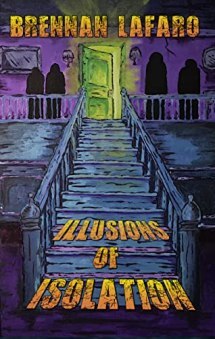
Title: Illusions of Isolation
Author: Brennan LaFaro
Release date: March 1, 2023
Huge thanks to Brennan for sending this e-ARC my way!
Over the last few years, I’ve really enjoyed reading Brennan’s ‘Slattery Falls,’ series, so when he reached out, I said absolutely. As you’ve heard me say a million times – I have been burned out on short-story collections for some time – BUT – I also know the difficulty it has been for many, many people to find reviewers open for reviews, so I gladly took this, wanting to do my best to support Brennan.
To be upfront – I’ve actually only read one previous short story from Brennan (which happens to be in here) and full disclosure – I also had a story in that anthology. Saying that, the story is superb and us appearing together in that book had no bearing on my thoughts towards this collection.
What I liked: This may sound weird, but while I greatly enjoyed the Slattery Falls books so far, I think I enjoyed the short stories even more and I think part of that was the new and fresh approach each story took. While the Slattery Falls stuff is really well done, if something bothers you, it’s there the entire time. Here, not so much. The story ends and you move on and it was that aspect that really elevated how these stories flowed for me. It was like an all you can eat buffet of sliders versus having one deluxe hamburger, if that makes sense?
The highlights for me – and it was tough picking only four (I like to pick four because it’s a number I think is high enough to convince folks to buy a collection or anthology), but I managed are;
Dressed for Success – this one follows a new kid at school who gets bullied. It starts small, but picks up and then all Hell breaks loose.
Piece by Piece – this one was verrrrry close to be my favorite in the collection. A young kid visits the creek by his home and begins to find pieces of a body. It was interesting to see how Brennan framed it but also how the kid responded.
Year of the Black Rainbow – a multi-layered story, this starts out with a teenager getting kicked out of their house by their overzealous, religious, whack-a-doodle parents. With no other options, they decide their only option is to find shelter in an abandoned building in town… one that is supposedly haunted.
A Shine in the Woods – my favorite story (and the story that we shared space with in the Shiver anthology) this should be no surprise to anyone who knows what I love to read and write. This one follows a kid and their parents as they head to their winter cabin over Christmas break. The caretaker warns them that some odd animals have been lurking around, rummaging for food. Brennan doesn’t hold back and we get a really great winter-survival-creature-feature short story.
Additionally, I’m a huge fan of story notes/author notes, but I prefer them directly after the story instead of compiled into one section at the very end. LaFaro gives some quick, fun insight into each story and thankfully these are slotted in directly after each piece.
What I didn’t like: Hey, it’s a collection, some will hit and some will miss. All of the stories are great in here, but there was one that was written back and forth in letter form that was just meh for me, but that’s purely because I’m not a fan of that type of storytelling. Epistolary. Not for me.
Why you should buy this: This collection flows from story to story hitting high point after high point. Each story is relatively short – I think the longest my Kindle told me was twelve minutes – excluding the last one that was a novelette. Brennan is as solid of a writer that you’ll find out there and even when he takes chances he handles it like an old pro.
If you’ve not read any of his work before, this is an excellent place to start. If you’ve already read some of his work, you’re in for a treat. Really well done.
5/5
3Q’s – Richard Clive and his flock of seagulls!

3Q’s has allowed me to connect with so many people with the dark fiction community and today’s guest is one of those who I’m so happy to have connected with! A talented author, a super supporter of so many and someone who absolutely should be on your TBR, I’m really happy to have Richard Clive stop by today!
Welcome Richard!
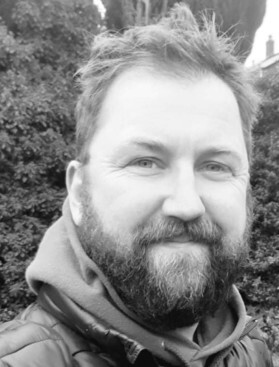
Steve: What does your process look like once you finish your first draft? Do you immediately dive back into it, or do you take some time away?
Richard: Once I have a first draft, I know I have a starting point. I tend to keep working on a piece until it is finished. Then I leave it for a while, edit it some more, and leave it again. And repeat!
If I get really stuck, I switch to another story and come back. But I read a quote recently. I think it was in Stephen Volk’s Coffinmaker’s Blues (highly recommended). The quote was ‘writing IS writer’s block’. So, it’s about perseverance – not giving up if you know the story is worth telling.
I see writers complaining when they’ve written just a few hundred words in a day. But three hundred words a day is equivalent to a novel in one year. So even if you write one good sentence, that’s forward progression. If I’m moving forward, I’m happy.
Steve: You win a very prestigious award and are invited to receive it. The award is a bronze plated copy of the book that means the most to you in your life. What book is it and why?
Richard: I don’t know what I’d do with a bronze-plated book!
But I’d probably go with Bram Stoker’s Dracula. I read the book when I was quite young after falling in love with Hammer Horror films I watched on my grandfather’s old projector.
I was obsessed with monsters and ghosts as a child and particularly with vampires – I’ve never actually written a vampire story, though! Perhaps I should.
Steve: Of the books or stories you’ve released, which is your personal favorite and why?
Richard: It’s between Made in Hell and my novella On Air. Both can be found in my collection Strange Frequencies.
On Air has difficult themes. I was worried about the story being published. It’s about intrusive thoughts, about thinking the worst things. If you are a good person and think terrible things, does that make you a bad person? The story is about a character with a form of OCD known as pure OCD, which causes sufferers to experience terrible intrusive thoughts.
It’s almost a cliché that horror writers are often nice people. But we all think such terrible things, and we even take comfort in these stories. What does that say about all of us?
Steve: Bonus Fun Question – You’re on a camping trip when suddenly a wild animal confronts you. You take off running and it follows. What animal are you confident in thinking you could outrun?
Richard: I chased down a seagull at the supermarket car park yesterday!
So, I’ll say a seagull.
Leaving the shop, I put a packet of sweets (candy) I had just bought and a bottle of hand sanitizer on my car roof while I opened the car door. The seagull swooped down and stole the sweets! I ran after it and threw my hand sanitizer towards it – just to scare it away, not to hurt it – and got my sweets back.
In the US, you have bears, wolves, rattlesnakes, and alligators. In the UK we have seagulls…
The tourists feed them, and they turn into psychotic maniacs!

Steve: Ha! That’s amazing. We got some crazy seagulls here in Canada as well, but nowhere near as crazy as the Canada Geese!
Thank you so much for doing this, Richard!
To find more of his work – check the links!
Amazon: https://www.amazon.com/stores/Richard-Clive/author/B098PHRD4K
Website: https://richardclive.com/
February 23, 2023
Book Review: GRAVENFROST by Peter Hammarberg
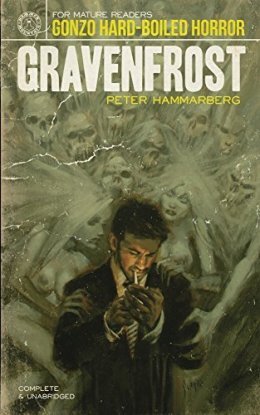
Title: GRAVENFROST
Author: Peter Hammarberg
Release date: May 7th, 2016
If you read any of my reviews, you know I typically start off with sharing how the book came to be on my TBR. Well, this one’s a fun one (at least I think so!) and one of the stranger ones!
Recently, a movie blasted it’s way onto Netflix that had everyone watching it and loving it. That movie was TROLL. I watched it with my son, who you may already know loves creature feature/Kaiju and Kaiju-adjacent movies, and we loved it. I think we’ve watched it five or six times now and each time is just a fun time. The movie itself is really well done, as many of the foreign films are, because it takes the story seriously and isn’t all about big explosions and catchy one-liners. The movie was co-written by Espen Auken and it turned out that we followed each other on Twitter and Instagram. We have messaged a bunch over that time, Espen kindly answering some questions that my son had (yes, there is a quick moment that is an ode to Jurassic Park in the movie!) and I sent him a copy of ‘Churn the Soil.’ Well, Espen had posted about this book, ‘GRAVENFROST’ by an author I’d not heard of and after reading the synopsis and reveling in the glorious cover art, I knew I needed to read it.
I went in with great excitement and I have to say – this book pushed me in a way I wasn’t expecting – but HOLY HELL, was this a fun time.
What I liked: ‘GRAVENFROST’ follows outcast FBI Special Agent Bobby Doyle who heads to the town of Gravenfrost to investigate the deaths of a group of ghost hunters. Only one of them survived, but it was all caught on film, and it took place at a notoriously haunted house, which means Doyle aka the agent tasked with ridiculous cases involving this type of phenomenon is sent out.
I’ve said this a million times in my reviews and online – I don’t like humor in my dark fiction. I never have. It typically throws me right out of the story and makes it hard for me to stay focused and on task. But Hammarberg didn’t care what I thought when he wrote this and Bobby Doyle is not only a massive dick, but a hilarious SOB and it just worked. I raced through this. The best way I can describe his character is this – David Duchovny played Fox Mulder on The X Files. Duchovny also played Hank Moody in the fantastic Californication. Bobby Doyle is Hank Moody as Fox Mulder. Just a frat-boy, ass hat who doesn’t hold back and makes quips, snarky comments and whatever comes into his mind at that exact moment. He’s essentially me in real life and I loved it. His character worked so well, but with the secondary characters, it really had me in stitches.
The story races along as we learn what happened and what Doyle needs to do to end the horror happening at the house, known as The Devil’s Domicile. There are some really frightening moments but those are typically bookended but some really well done set up and knock down scenes, which allows the action to be nicely paced.
The ending is really well done, as well as the closing out of the characters. It definitely sets things up for more in this world. I hope we get to revisit Bobby Doyle. Even though this came out in 2016, there could still very well be another novel coming at some point.
What I didn’t like: I think I would’ve liked it if we would’ve had one more huge scare moment. We get a couple, but the ending is more bash and boom than oooh’s and aaahh’s. I gotta stay spoiler free, but I really wish we would’ve seen a big good vs evil moment.
Why you should buy this: ‘GRAVENFROST’ ticks a lot of boxes for those who like dark fiction. We get really fantastic characters, great banter, a really solid set piece with the town of Gravenfrost but also The Devil’s Domicile and we get some really amazing spooks and sequences. I’m frustrated I didn’t come across this one sooner, but hopefully more of you will get on this amazing read after seeing my review!
Now, we await a potential sequel!
5/5
3Q’s – Paul Flewitt knows where to look!

Today’s 3Q’s is a blast and I’m super excited for you all to give this one a read!
I connected with Paul when he joined the Kendall Reviews review team, back when I was a member and he’s written some really strong think-pieces on the current state of horror publishing, the various platforms and the various representations we see within horror itself.
Always a fun convo, I’d like to welcome Paul!
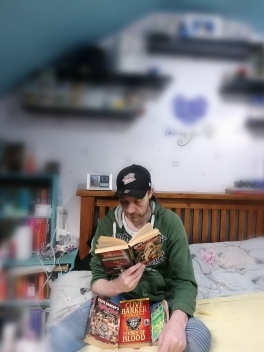
Hi Steve, and thanks for the interrogation. It’s a pleasure.
Steve: What does your process look like once you finish your first draft? Do you immediately dive back into it, or do you take some time away?
Paul: Well, I’m kind of old school, so my first draft is always handwritten. I type up whatever I wrote the day after, so that really becomes my first edit pass. I still mistype, but a lot of the embellishments are done during the typing.
The process once the manuscript is complete can vary, depending on how long I’ve spent with the project. If it’s a short story, I’ll generally jump straight into editing and embellishing before sending it to my editor to pick apart. With longer work, I’ve inevitably spent months, or sometimes even years with those characters. That means I’m a little too close to the project and will miss things that should be glaringly obvious. So, I’ll take a couple of weeks away from it and either work on my secondary project (I usually have two or three projects in varying stages of development,) or tickle away at my Wattpad project. Sometimes, I might even just take the couple of weeks away and do nothing writing related at all … unless you count reading.
Once the rest period is over, I come back to the project fresh and read through the whole manuscript from page one. I’ll pick up typos and change them, make a note of clunkiness, any plot holes or anything I might be able to do better. Then, I read through again and make the changes I made a note of. Then, when I’ve done all I think I can do, it goes to my editor, Patti. That’s where I cringe while she picks it apart and paints the file in a wonderous variety of colours.
Actually, this is the part of the process I like best. I receive the edits back from Patti and spend some time reading her comments and recommendations. She never makes any changes to the document, only highlights the section at issue and adds a comment. Then, it’s up to me to decide whether I want to act on those changes or not. There’s usually only one or two suggestions she makes that requires discussion, usually because the choices I made are subjective or questions of artistic style. At those points, we’ll have a conversation about it where I will put across what I’m doing, and she will either agree or disagree and explain why she disagrees.
Patti might go through the manuscript three or four times before we both sign off on it and agree it’s done.
And that is my process.
Steve: What’s the one thing you’d change now if you’d have known it when you started writing?
Paul: Honestly, I would probably not have released my debut novel when I did. In hindsight, it was probably too soon and caused me some issues which set me back a good few years. It’s a long story, but the cliffnotes are basically these: I released and it was moderately successful. I got a bunch of good reviews from industry reviewers, comparing me to some of my favourite writers. That was all cool, but then I put a lot of pressure on myself to follow that up … or better it. The problem was, I didn’t know how to do that. I didn’t know whether I wanted to write a sequel to the first book, or whether to go a different way. I started writing a couple of stories, but they seemed forced to me and weren’t working.
Alongside that, I got a lot of invitations to write for anthologies and didn’t know how to say no. I didn’t want to come across as a diva or unprofessional. I didn’t want to not be asked in future, so I just said yes to everything. Big mistake. I got bogged down in deadlines, then started resenting them because I wasn’t writing a follow up to my novel. Then, it all stopped. I found I couldn’t write. I’d sit for hours with a blank page in front of me, and nothing would come. That was a first for me, and it got scary. I’d committed to all these projects, and I didn’t know how to honour those commitments. For the first time in my life, I started to feel anxiety and had panic attacks. Little did I know that this was an unrelated health issue rearing its head, and the stress of trying to keep up was making it manifest. In the end, I stopped writing for around a decade, except for releasing a short story here and there.
So, that’s a longwinded way of saying that I released my debut too soon and found I couldn’t handle it when it did well. My plan had been to write short stories and hone my craft, find my voice and then write longer form stuff, learning the industry as I went. Needless to say, I ended up jumping in at the deep end and found myself drowning. So, now I’m coming back forearmed, knowing what to expect … and also knowing that it’s fine to say no.
Steve: Of the books or stories you’ve released, which is your personal favorite and why?
Paul: It’s interesting, because there are a few answers people might expect here. It could be my debut Poor Jeffrey,) because, for all the nightmares it caused, it proved that I can actually do this thing. Also, it wasn’t a half bad story and still stands up. It could be the last thing I released (Defeating The Black Worm,) which you reviewed quite favorably. It could even be the next thing, a novel called Architecture, which will be released February 28th.
In truth, it’s none of those things. The one I’m most proud of is a short story which first appeared in the Demonology anthology a few years ago, and was reprinted in the paper version of …Black Worm. It’s called Climbing Out, and is the life story of a Nephilim as he climbs out of Hell. It’s a sad little tale really, not really big on horror. I like it because it’s the one where I felt like I was writing with my true voice, writing something I would really enjoy reading. It was the first one I thought was complete, and as good as I could make it.
Of course, that opinion could change with the next one … or the one after that …
https://www.burdizzobooks.com/
Steve: Bonus Fun Question – Would you rather be lost at sea or in the mountains?
Paul: Oh, in the mountains for certain. Just thinking about this question made me uneasy when I pictured being lost at sea, surrounded by nothing and very little in the means of sustenance for survival. The nonsense rhyme comes to mind: “Water, water everywhere and not a drop to drink…” and it is kind of anxiety inducing. I’m not sure I’d do well with no landmarks, no way to mark the distance travelled or the distance still to go.
The thing I like about mountains is that there’s bountiful food, as long as you know where to look. I like walking in the countryside, and there’s something invigorating about walking in landscape that’s largely been untouched for thousands of years. There’s always something new to explore over the next hill, around the next bend, in the next valley, and the next … and the next … and the next. I get some of my best ideas when I’m rambling around in the wilderness, alone and miles away from the city. That, my friend, is where I feel at home.
And anyway, we’re never really lost. We’re only ever waylaid for a bit (as my dear departed Dad used to say when he was clearly lost.) We always find home eventually.

Steve: Great choice!
Thank you so much for doing this, Paul!
To find more of his work – check the links!
Amazon: https://www.amazon.com/stores/Paul-Flewitt/author/B00FG34L7O
Twitter: https://twitter.com/RealPaulFlewitt
February 22, 2023
3Q’s – Mark Zirbel is on a boat!

Today’s 3Q’s guest is a Wonderland nominated author and someone who continues to push his readers to allow them to follow along with his steady and imaginative adventures!
Please do welcome Mark!
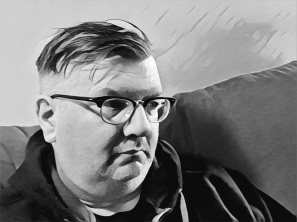
Steve: What does your process look like once you finish your first draft? Do you immediately dive back into it, or do you take some time away?
Mark: For me, it’s important to step away for a while so I can review my draft with fresh eyes. If other people choose to dive right back in, I think that’s fine. Whatever works. However, when it comes to proofreading your work (versus revising it), it’s essential for everyone to take some time away. The only way you’re going to catch errors in your own work is if enough time has passed for you to see what’s really on the page instead of what your mind wants to be there.
Steve: What’s the one thing you’d change now if you’d have known it when you started writing?
Mark: When I started to get serious about my writing, I joined a writers workshop. The group met once a week, and I always wanted to have new material for feedback, so I’d crank out a story a week. It was great from a creative standpoint, but it got me in the bad habit of making my short stories very short. If I hit 1,500 words, that was an opus for me. Sometimes less is more, but my writing was suffering because of the brevity. I needed to slow down and dig in deeper to everything – the characters, the setting, the plot, you name it. I finally figured that out, but I wish I had figured it out sooner.
Steve: Of the books or stories you’ve released, which is your personal favorite and why?
Mark: I’m really proud of Cyberpunk Zombie Jihad because it was my first book and it was nominated for a Wonderland Award in 2020 for best collection. But I think I’m even happier with my new novel, Shithole USA. It has a lot of the same elements as Cyberpunk Zombie Jihad – including cyberpunk, bizarro, horror, and satire – but it takes things to a much weirder, much more experimental level. Ze Burns, who writes a fantastic bizarro fiction blog, said that Shithole USA may be the weirdest book he’s ever read in the bizarro genre. That makes me feel like I’ve really hit the mark this time.
Steve: Bonus Fun Question – Would you rather be lost at sea or in the mountains?
Mark: Good lord … I’d be dead in either scenario. I don’t fish. I don’t hunt. I’m not a survivalist. Then again, I don’t think most doomsday preppers are all that prepared, either. In Shithole USA, there’s a prepper who can make a gun from nothing but sticks and shit. The guy poops out his own bullets, too. He puts himself on a low-fiber diet so he can make rock-hard ammo – and he ends up dead on the toilet from constipation. There’s survivalism for you. But anyway, I never answered your question. Let’s see – I guess I’ll try my luck in a boat. Maybe it’ll be a luxury yacht with a month’s food supply.

Steve: Fair enough! Thank you so much, Mark for doing this!
To find more of his work, check the links!
Amazon: https://www.amazon.com/stores/Mark-Zirbel/author/B0BL82BKDR
Facebook: https://www.facebook.com/mark.zirbel.1/
February 21, 2023
Book Review: Oblivion’s Child by Tommy B. Smith
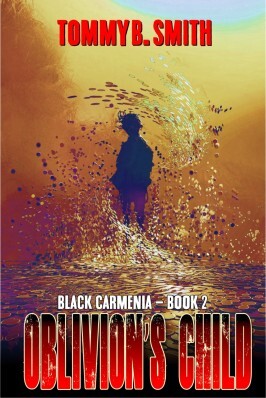
Title: Oblivion’s Child (Black Carmenia – Book 2)
Author: Tommy B. Smith
Release date: January 17th, 2023
I have to admit I’ve read far too little of Tommy B. Smith’s work. What I have read has been fantastic and everyone should make time to read his excellent ‘The Mourner’s Cradle: A Widow’s Journey.’
Recently, he reached out to me asking about if I was open for reviews, as he had a few out and was trying to get some eyeballs on them. This one caught my eye, but before I bought it on Amazon, I confirmed that it was fine that I hadn’t read Book 1 in the Black Carmenia series. He said it would be fine and, after having finished this, I can confidently say I never felt lost or as though I’d missed something. Saying that, we do learn some back story about the Black Carmenia, so I suspect that tied into Book 1 and I’d be curious to dive into that one and see what’s what. The synopsis of that book – ‘New Era’ – is definitely intriguing!
What I liked: The story follows nine-year-old Zander, who lives with his grandma and aunt. His aunt has been unresponsive for some years, but now, after a storm moves in and ravages where they live, she wakes up. Within the storm are – oddities – which is the best way of saying that while remaining spoiler free.
From there, we get a stranger who is thrust into their home, a forced burying and an elderly woman who house is on the edge of what awaits those who walk further.
Smith has created a really engaging and imaginative narrative and place here. We race along as Zander and his aunt (aided by the elderly woman, Nellie) search for this stranger but also for Zander’s mom and Nellie’s son. What they find is fantastic and while it’s never out right said, this read like a portal-horror novella and I for one am always down for that.
The ending was great and not only allows for furthering Zander’s story, but also can easily be utilized for more in Smith’s Black Carmenia series.
What I didn’t like: 99% of this novella read like a fantastic YA portal-horror story. Saying that, what I wasn’t really a fan of was the domestic violence angle involving the stranger that meets with Zander. It just didn’t fit the rest of the story at all and didn’t add much to the overall aspect of what was happening at all.
Why you should buy this: If you like storm-based/portal-horror with fantastic set pieces and really intriguing lore, look no further. Smith does such a phenomenal job of setting and atmosphere that you’ll be pulled into the world and will love being within.
Really well done.
4/5
Book Review: Sleeping Among Wolves by Robert Royal Poff
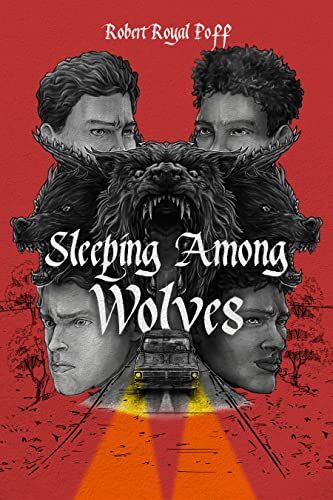
Title: Sleeping Among Wolves
Author: Robert Royal Poff
Release date: March 7th, 2023
After reading Robert’s collection ‘Call to the Void: Definitive Edition’ and really enjoying it, I was really excited when he reached out to see if I’d be keen on an e-ARC of his upcoming novella, ‘Sleeping Among Wolves.’ I had no idea what it was about or what to expect so once I dove in, I was immediately engaged and brought into the world that he had created.
What I liked: The story follows Atlas and Moose, six months after an infection has ripped through humanity, leaving some alive and others with an insatiable desire to eat those who live. The two of them escape and decide to make their way over to where a radio broadcast is offering safety.
The reality here, is, that if you’ve read much in the way of zombie/post-apocalyptic survival books, you’ll have come across a lot of what you’ll find within. The strength of this novella though, is Atlas and Moose and their relationship. They will do whatever it takes to make sure they both survive and it’s the most compelling aspect of the story.
We get a lot of emotions laid on the reader throughout and as things take a turn and we get to the ending and discover what will be happening, it hinges on how much the reader has bought in to their relationship.
What I didn’t like: As I said, most of what we experience in here is something you’ll have come across before. I almost groaned when we got a bad guy with a baseball bat wrapped in razor wire. It’s tough to find new ground in this subgenre, but as I did say before, the relationship here definitely pulls you past a lot of the predictable plot twists.
Why you should buy this: Well, if you love this type of fiction, you’ll really want to read this because this will be your bread and butter. If you’ve not read Robert’s work previous, this is a great spot to jump in and see his ease of how he tells a story. And of course, I can’t overstate this enough – this novella features one of the strongest relationships between two primary characters I’ve read in some time.
Good stuff.
4/5
3Q’s – Ruth Anna Evens and the day the ceiling fell!

Really fun 3Q’s today for all of you who’re still reading these! Thanks for your continued interest in this series, it’s been a blast! Today’s guest is someone that I connected with over on Twitter a few years back and it’s been great interacting with her and supporting each other as we go!
Please welcome Ruth!

Steve: What does your process look like once you finish your first draft? Do you immediately dive back into it, or do you take some time away?
Ruth: I almost immediately shoot it off to beta readers, which forces me to take a break. Once they get their comments back to me, I usually dive right in and start nipping and tucking and fixing it up. If it’s big changes, I often let it sit for a bit while my brain works out how to incorporate the changes without ruining the whole story. I edit as I write, so I don’t usually have a ton of editing to do that is obvious to me, so that’s why I always, always use as many beta readers as I can.
Steve: Do you believe cryptozoological creatures exist? If so, which one do you think has the best chance of being proven to exist?
Ruth: Hmmm…I think that there are definitely some sea creatures that are outside of what has been confirmed. Like some crazy alien shit with superpowers the likes of what we haven’t imagined. So I totally think there is some fantastic giant squid with, like, mind control powers or something, lurking in the deepest of trenches.
Steve: Of the books or stories you’ve released, which is your personal favorite and why?
Ruth: My collection No One Can Help You: Tales of Lost Children and Other Nightmares has some really deeply disturbing stories in it. It isn’t just stories to me; it’s my fears brought to life and then turned up to eleven. I love the supernatural elements, but it’s the really-could-happen aspect of the stories that frightens me the most. I think it’s a really scary book.
Steve: Bonus Fun Question – What was the best practical joke you’ve ever been involved in?
Ruth: Omg, this was terrible, but when I was a kid, we lived next door to our landlord. He was the nicest old man, always fixing things and teaching us stuff and generally being great. On April Fool’s Day one year, we decided to get him, so we ran over to his house screaming that the ceiling in the kitchen had fallen down onto the kitchen table. That man 100% believed us, and his face—I’m just glad he didn’t have a heart attack. So, it was a terrible prank, but so believable, because it was a shitty little house. That’s the only one I can remember, so it’s going to have to be the best ;).
Steve: Haha, that is amazing! And I think it’s a solid prank because nothing bad had actually happened to the house!
Thank you so much for doing this, Ruth!
To find more of her work – check the links!
Amazon: https://www.amazon.com/stores/Ruth-Anna-Evans/author/B09J21ZQB7
Twitter: https://twitter.com/ruthannaevans
February 20, 2023
3Q’s – Rus Wornom and the Endless Quest!

Today’s guest is an author who has been churning out dark, thought-provoking stories for some time and one whom I connected with a few years back when he kindly reached out to me to see about a potential blurb for his excellent ‘Ghostflowers.’ He’s had a long and storied career and has written for an IP that many of the horror world loves to play!
I’m super happy to have Rus Wornom stop by today!
Welcome Rus!
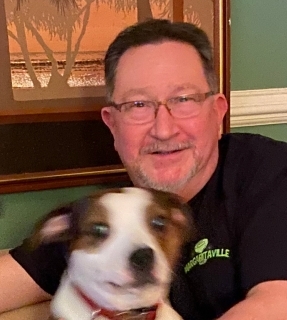
Steve: What does your process look like once you finish your first draft? Do you immediately dive back into it, or do you take some time away?
Rus: I do a little bit of everything. First, I revise while I’m writing. A lot of writers suggest not to do that, but if something that I’ve written bothers me, I fix it and move on. I’ve gotten into the habit of writing the first draft in longhand on legal pads, and then transcribing and revising into the first computer draft in Word. That helps hone the language some, but in no uncertain terms does one revised draft make a polished manuscript.
I generally tear into the first draft almost as soon as I finish. A writing professor I once had, a fine, character-based writer named Tony Ardizzone, suggested to our workshop that writers should wait a minimum of a month before revising their first draft. I don’t necessarily disagree with that, because a certain amount of time away from the manuscript will provide a little more objective perspective, and allow you to better see elements that might be working wrong. On the other hand, deadlines may not allow a writer the luxury of a month or two to start something else, so you have to go into revisions with the knowledge—and the decided opinion—that, yes, Your Shit Stinks. Hemingway was right: “The most essential gift for a good writer is a built-in, shockproof, shit detector. This is the writer’s radar and all great writers have had it.”
In other words, I revise as necessary. After I finish a second draft, I generally mull things over in my head without rereading the ms. Things will hit me—I’ll come up with a new scene, or I’ll realize that another scene isn’t working. At that point, I print out the 2nd draft manuscript and work it a little with a red pen, mostly in those areas that I’m thinking about while not really writing. Things come to writers when they’re least expected: in the shower, while driving, having a meal, and you have to take advantage of inspiration if and when it strikes.
After I add or subtract those areas that hit me unconsciously, I go back into the entire manuscript and start cutting. I tend to write long, and while SF and fantasy novels are frequently accepted for publication at about 125,000 words, publishers want mainstream novels at 100,000 words or less, and that includes horror. My longest draft of Ghostflowers ended up at 130,000. With the final and 13th draft at 113,000 words, I knew I had cut some scenes I liked and wanted, but I also knew that the novel was tighter and more straightforward.
The first draft is always the real grunt work. Cutting, pasting, revising—that’s where the magic comes in, not to mention the real fun for a writer.
Steve: What’s the one thing you’d change now if you’d have known it when you started writing?
Rus: That’s an easy one. I wish I’d known when I started out how the publishing industry was going to change over the decades. Publishing is no longer writer-friendly, and I blame that on corporations becoming giant conglomerates, corporate greed, and on Jaws and Star Wars.
When I started thinking about becoming a writer—subscribing to Locus and Writer’s Digest, taking college writing workshops—it was the 1970s. Publishing was largely a business of educated guesses and editorial needs, and of relationships between editors and writers. Woolworths across the country had long walls of paperbacks. Paperback spinner racks were in every 7-Eleven, along with comic book racks. They’re not there now, because books don’t have as high a profit margin as most corporations demand today. If you compare these past offerings to the paperback selections available in Kroger or Publix nowadays, you’d see huge differences. Then, there was more variety to the titles available. Today, it’s mostly bestsellers. Then, the authors available on the racks may have been new or unheard of. Today, it’s a selection of popular authors chosen by algorithm, based on previous, blockbuster retail sales.
Well into the 1980s, paperback publishers had a set number of books to publish a month. If I remember correctly, Warner’s Questar Books, edited by Brian Thomsen, published four or six science fiction titles a month. These schedules were filled with novels that had been agented, and some that had been found in the slush pile, and some were requested by the editor. That’s how it was done back then; the editor might have an idea for a book he’d like to publish, and he’d call a writer he knew—and he knew he could depend on— and might say, “Hey, I’d like an SF spy story that feels like something Greg Bear might write, crossed with Three Days of the Condor. I need 80,000 words in six months. You interested?”
That type of publishing has pretty much vanished. Mass market paperbacks are in short supply today because the conglomerates that have bought all the mainstream publishing houses want more of our money than ever before—and mass market paperbacks just don’t make enough for Wall Street types. Trade paperbacks have replaced them, and today’s publishers expect in 2023 that trade paperbacks will become the new hardcovers: cheaper to publish, but we’ll be charged more for them.
Publishing has changed so much because conglomerates realized there was revenue to be had by buying up a bunch of publishing houses; so now we really have only the Big 5 publishers as serious players, all because of corporate greed, combined with the bestseller mentality that has ruined a lot of things—and that came about by the back-to-back success of Jaws and Star Wars. Publishers today don’t want midlist titles, say 10-20 a year that each make respectable sales. They want only potential bestsellers. They’ve given up seeking incremental revenue and are concentrating instead on massive sales.
Hence, we now have a landscape with five big mountains, and innumerable little hills that represent indie publishers and publishing on demand. As to horror, the same rules apply: they want only bestsellers, and they don’t want to take chances on unknown writers.
Self-publishing, which has really caught on nowadays, still isn’t very profitable for most writers. So, if I were starting out today, I’d have many, many second thoughts, because the opportunities for real financial success are today stacked against creatives.
Steve: Of the books or stories you’ve released, which is your personal favorite and why?
Rus: My first three books were works for hire, written for Dungeons and Dragons in the 1990s at the request of the editor in chief: Brian Thomsen, who I mentioned above. They were in a jam with the final book in the Spelljammer series, and Brian asked me to take it over and deliver the novel in thirteen weeks. During that time, the publisher decided to create a new series called Endless Quest, basically a Choose Your Own Adventure series set in the D&D universes, and Brian called me up and asked me if I’d like to write the first two. I bring all this up as explanation for why I don’t consider these books as original works of mine, even though I wrote every word: Spelljammer: The Ultimate Helm was written by me, but based on an existing outline by the writer who had to leave the project. The Endless Quest books, Dungeon of Fear and Castle of the Undead, were juvenile derivatives of D&D. Dungeon was original to me, but the first writer of Castle was let go, and I was told I could use as much of the existing manuscript as I wanted (or not). I retained only the main character’s name, if I remember, so 99.9% of Castle is all mine. Still, they’re based on existing properties, and while I wrote them, I don’t consider them either very original nor my best work.
Ghostflowers has to be my favorite so far, simply because I lived through the era it depicts, and the ‘70s still resonate through me. Dark Shadows, vampire lore, and summers living in the South were extremely important and formative, and Ghostflowers touches a part of my secret soul. Now, the novel that my agent is currently marketing for me is also quite close to my heart, but because it’s completely different. The Enigma Club is a little bit meta: a pulp novel that plays with pulp tropes, while also subverting them for comic effect. Think circa 1930, Indiana Jones meets Monty Python, with dedicated nods to John Carter and Tarzan and the Shadow and Howard and Lovecraft. Enigma Club is a high concept novel, but Ghostflowers is more personal. The novel I’m working on right now, Shades— Well, it hates me, and I hate it. But I WILL finish it.
Steve: Bonus Fun Question – Would you rather be lost at sea or in the mountains?
Rus: Mountains. I can’t drown or get eaten by sharks.
Steve: Amazing responses, Rus. Wow! Thank you so much for this. Just phenomenal insight!
To find Rus’ work and connect – check the links!
Amazon: https://www.amazon.com/stores/Rus-Wornom/author/B0B558XM43
Twitter: https://twitter.com/RusWornom
Website: https://ruswornom.com/
February 17, 2023
Book Review: One Hand to Hold, One Hand to Carve by M. Shaw
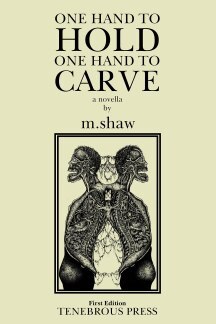
Title: One Hand to Hold, One Hand to Carve
Author: M. Shaw
Release date: April 1, 2022
Night Train. All Hail the House Gods. At the End of the Day I Burst Into Flames. Armageddon House. Helpmeet. The Mud Ballad.
Over the last number of years, there’s been a handful of books that were unlike anything I’ve ever read before and absolutely had me held rapt.
We can safely add One Hand to Hold, One Hand to Carve to that list.
This novella came onto my radar initially when I saw my friend Sonora Taylor rave about it. I wasn’t sure what to expect, just look at that synopsis, but I knew going in that I’d be in for an unexpected journey and that’s exactly what happened.
What I liked: The story follows a body that wakes up on the table in the morgue, cut in half. Each side wakes up as their own individual half; Left and Right.
From there, M. Shaw delivers perhaps the most heart-wrenching yet unconventional coming-of-age story you’ll ever read. Two halves, making a whole, trying to find their way in the world and to remember who they were before. Each side has a dream of what their life should look like, or what they should work towards. The Left half takes over the cooking, cleaning and finances of their day to day lives, while the Right half gets a job and does the driving. From the outside looking in, this seems pretty mundane, but when gathered into this story, it works to not only challenge the reader, but for us to also empathize with each half. They both want to be whole, both want to remain connected to the other, while each wanting to be their own person. I suspect this is a constant issue with identical twins growing up.
The story unfolds really nicely, seeing a growing tension build between both sides, especially as some regrowth begins, which ultimately pushes them harder mentally about being their own person.
The ending is really great, a very powerful way of tying it all together and showcasing not only some of what society has become, but also the difficulties those stuck in their ways have at attempting any sort of positive change.
What I didn’t like: I actually wasn’t too fond of the epilogue. The tone and narrative style felt completely different from what the entire novella had been up to that point and it almost worked to subtract some of what had been built up for the ending. It may work for you, but for me, I would’ve almost preferred it wasn’t there at all.
Why you should buy this: If you’ve read any of those books I listed at the beginning and were blown away, then this should be an auto-buy and an auto-to the top of the TBR book. This is unsettling body horror that will make you squirm but also question what it is to be connected to someone and what it means about where we ultimately fit into the world.
Phenomenal.
5/5

